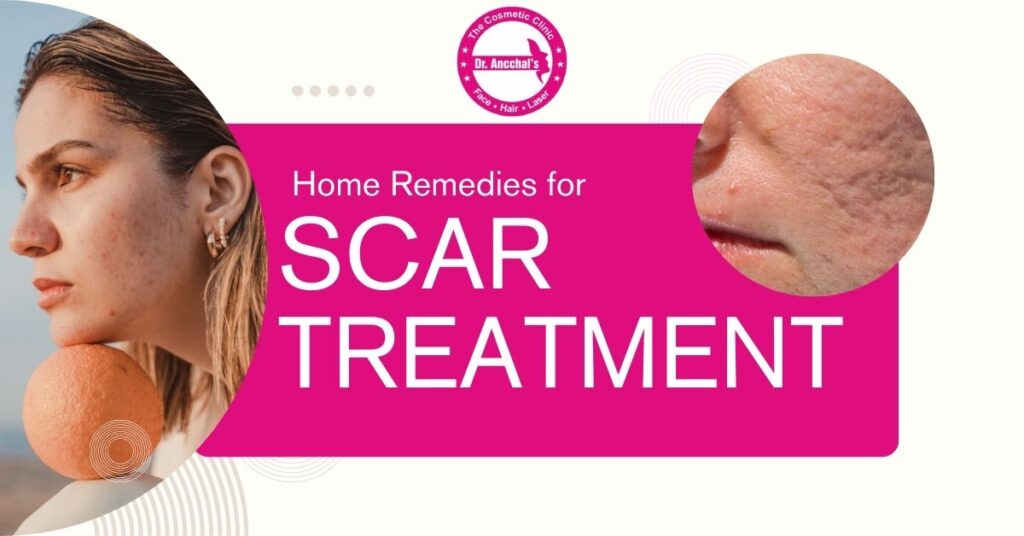Struggling with Stubborn Scars? You’re Not Alone
Scars can be a lasting reminder of acne, injuries, or surgery. Many people feel self-conscious about their scars, especially if they are in visible areas like the face or hands. If you’ve been searching for effective scar treatments that actually work, you’re in the right place.
In this guide, we’ll explore the best scar removal treatments, from natural remedies to advanced medical procedures. By the end, you’ll know which method is best suited for your type of scar and how to achieve smoother, healthier skin.
Understanding Different Types of Scars
Before choosing a treatment, it’s important to understand the type of scar you have. Different scars require different approaches.
- Acne Scars – These can be deep-pitted scars (atrophic) or raised scars (hypertrophic). They often occur due to severe acne.
- Injury Scars – Cuts, burns, and wounds can leave noticeable marks on the skin, sometimes turning into keloid or hypertrophic scars.
- Surgery Scars – Surgical procedures often leave scars, but they can fade with proper care and treatment.
- Keloid Scars – Raised, thick scars that extend beyond the original wound area and can be difficult to treat.
- Hypertrophic Scars – Similar to keloids but do not grow beyond the wound area.
Best Scar Treatments to Fade Marks
1. Topical Treatments for Scar Removal
If you’re looking for over-the-counter scar treatments, these are a great starting point:
- Silicone Gel or Sheets – Helps soften and flatten raised scars over time by keeping the skin hydrated and reducing collagen buildup.
- Vitamin E Oil – Hydrates the skin and promotes healing. However, it may not work for everyone and should be used with caution.
- Retinoid Creams – Effective for acne scars, improving skin texture and boosting collagen production to smooth out uneven skin.
- Onion Extract Gel – Found in many scar creams, it reduces redness and inflammation while improving scar texture over time.
- Hydroquinone Creams – Help lighten dark scars and hyperpigmentation.
2. Home Remedies for Scar Treatment

For those who prefer natural methods, try these options:
- Aloe Vera – Soothes the skin, promotes collagen production, and speeds up scar healing.
- Honey and Lemon – Honey is a natural humectant that helps heal scars, while lemon has lightening properties to reduce pigmentation.
- Coconut Oil – Rich in antioxidants and fatty acids that deeply moisturize the skin and improve its texture over time.
- Turmeric Paste – Known for its anti-inflammatory and skin-lightening properties, it helps fade scars and even out skin tone.
- Rosehip Oil – High in vitamin C and essential fatty acids, it helps regenerate skin cells and reduce the appearance of scars.
3. Professional Scar Treatments for Faster Results
If topical treatments and home remedies don’t work, medical treatments can provide better results:
- Laser Therapy – Resurfaces the skin to improve the appearance of scars by stimulating collagen production. Best for acne scars and injury marks.
- Microdermabrasion & Chemical Peels – Remove the outer layer of skin to encourage new cell growth and improve skin texture. Ideal for mild to moderate scars.
- Microneedling – Uses tiny needles to create micro-injuries that trigger collagen production, helping to fill in deep scars.
- Corticosteroid Injections – Helps flatten raised scars over time, especially keloids and hypertrophic scars.
- Cryotherapy – Uses extreme cold to shrink raised scars and prevent keloid regrowth.
- PRP (Platelet-Rich Plasma) Therapy – Uses the body’s own platelets to heal scars and regenerate skin cells.
4. Surgical Options for Severe Scars
For deep or large scars, surgery might be the best option:
- Scar Revision Surgery – Minimizes the appearance of scars through excision and repositioning of the skin.
- Skin Grafting – Used for burn scars or extensive tissue damage by transplanting healthy skin from another area.
- Punch Excision – Removes deep acne scars by cutting them out and stitching the area.
Choosing the Right Scar Treatment for You
Not all scars are the same, and neither are the treatments. Here’s how to decide which method suits you best:
- For acne scars – Try retinoid creams, microneedling, chemical peels, or laser therapy.
- For injury scars – Use silicone gel, laser therapy, microdermabrasion, or corticosteroid injections.
- For surgery scars – Consider silicone sheets, corticosteroid injections, PRP therapy, or scar revision surgery.
- For keloid scars – Corticosteroid injections, cryotherapy, and laser treatments work best.
- For hypertrophic scars – Silicone sheets and steroid injections can help flatten them.
Preventing Scars: Tips for Healthy Skin
While scars can’t always be avoided, you can reduce their severity with these tips:
- Keep wounds clean and moisturized to prevent deep scarring.
- Avoid picking at scabs to allow natural healing and minimize skin damage.
- Apply sunscreen to protect scars from darkening and hyperpigmentation.
- Use vitamin-rich skincare products, such as vitamin C and E, to aid recovery.
- Massage scars with oils or creams to improve blood circulation and soften tissue.
Final Thoughts
Whether your scars are from acne, injuries, or surgery, effective scar treatment are available. From home remedies for scars to advanced medical procedures, you have many options to improve your skin’s appearance.
For the best results, Contact Dr Anchal today to schedule a consultation and take the first step towards smoother, healthier skin.